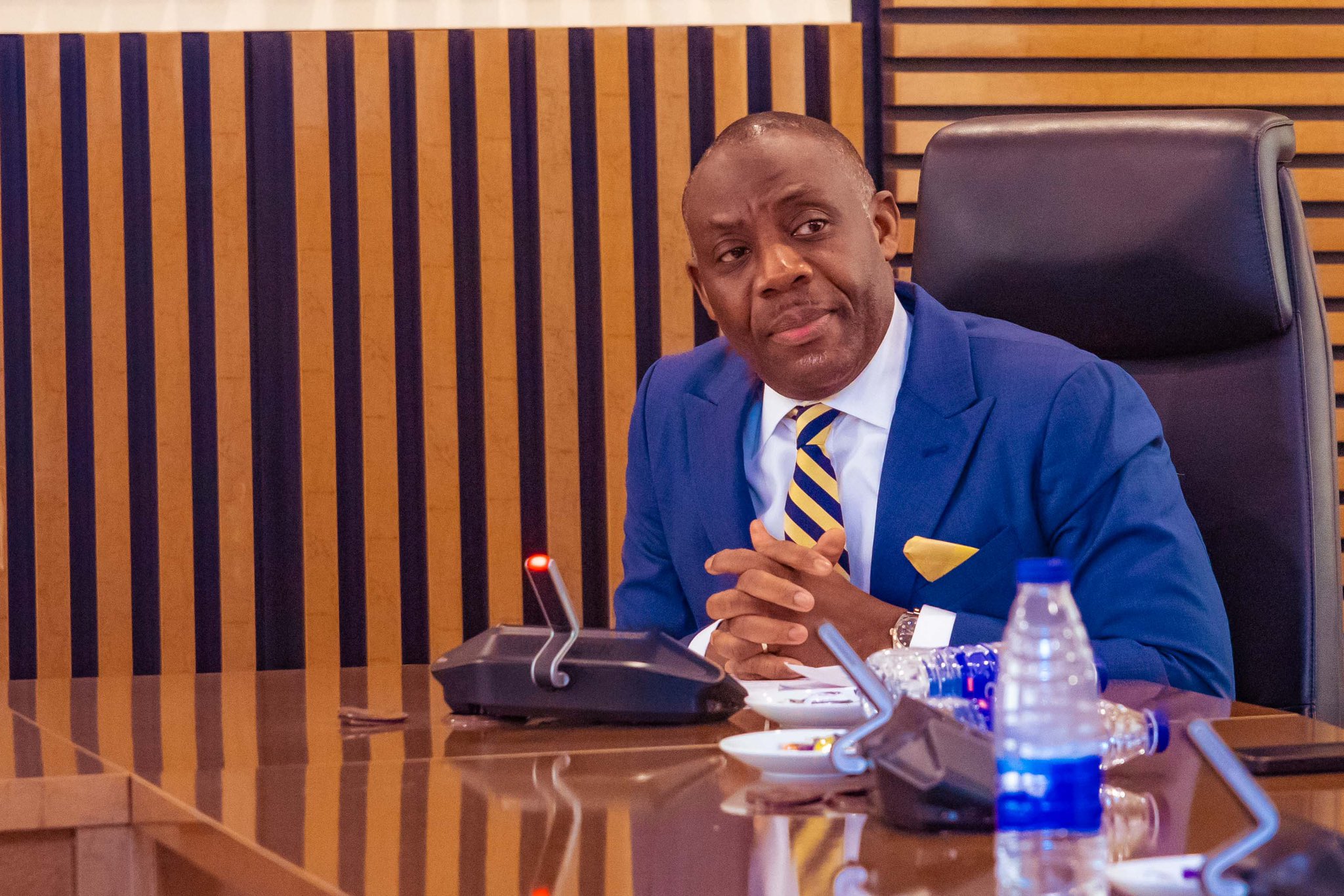Education
FG may drag ASUU to industrial court over strike, salary arrears

The Federal Government is preparing to drag the Academic Staff Union of Universities, ASUU, before the National Industrial Court to compel the union to call off its prolonged strike, which has entered its seventh month.
Another option being considered is proscribing the union, just as the government has insisted on ‘no work no pay’ in response to ASUU’s demand of being paid for the over six months the university lecturers have been on strike.
The options coming from the sources at the Presidency follow a truce last week between the FG and non-teaching staff/senior staff of the universities over the latter’s demands, leading to their decision to suspend their own industrial action with effect from this week’s Wednesday.
One of the sources quoted by Vanguard in its report said the FG had many options before it, which include prescribing the union and going to the industrial court.
“The government has so many options if ASUU refuses to be patriotic. One of the options is the proscription of ASUU which is contained in the Trade Unions Act and even in the Trade Disputes Act.
“The President can proscribe an association whose action is inimical and constitute economic sabotage to a country. In the Trade Unions Act, the President can withdraw the certificate of any organization whose conduct is not in tandem with the terms for their registration.
“Also, Section 17 of the Trade Dispute Act permits the Minister of Labour to approach the National Industrial Court. CAP 78, laws of the Federal Republic of Nigeria 2004, to refer the matter to the National Industrial Court for adjudication to enforce the legality or otherwise of the ongoing prolonged strike by ASUU and to interpret in entirety the provision of Section 18 of the Trade Dispute Act as it applies to cessation of strike once a trade dispute is apprehended by the Minister of Labour and Employment and conciliation is ongoing.”
Four university-based unions that have been agitating for the payment of earned allowances are ASUU, which calls its own Earned Academic Allowances, the Senior Staff Association of Nigerian Universities, SSANU, the Non-Academic Union of Education and Associated Institutions, NASU, and the National Association of Academic Technologists, NAAT.
ASUU initially embarked on a month warning strike on February 14, 2022 and has been rolling over the strike till date, while the other three unions, starting with NAAT, downed tools in March.
Among the contentious issues are the non-release of revitalization funds, earned allowances, problems associated with payment of salaries through the use of Integrated Payroll and Personnel Information System, IPPIS and the re-negotiation of the 2009 Agreement.
While ASUU has insisted that its members should be paid through its preferred platform, the University Transparency and Accountability Solution, UTAS, the non-teaching staff, especially SSANU and NASU, have designed their own payment platform, the University Peculiar Personnel and Payroll System, U3PS.
All the the three platforms have been submitted to the government through the National Information Technology Development Agency, NITDA, which has subjected them to integrity tests.
While SSANU and NASU through their umbrella, Joint Action Committee, JAC, on Saturday signed agreement to suspend the strike on Wednesday for two months, ASUU has remained adamant, insisting that the government should pay its members the withheld five months salary before it would suspend the six months strike.
The Federal Government has already approved an additional N100 billion for the university sector as part of the understanding in the re-negotiation of the 2009 Agreement.
Besides, N50 billion was equally approved to be shared by the university-based unions as earned allowances.
The Federal Government had invoked the ‘no-work no-pay’ policy for the striking public university workers and the Minister of Education, Mallam Adamu Adamu on Thursday told journalists that there is no going back on its total implementation.
Vanguard also quotes on Presidency source who spoke on condition of anonymity, as saying, “Because of the priority President Muhammadu Buhari has paid to education, he has approved additional N100 billion for the universities and about N57 billion for the Polytechnics and Colleges of Education.
“This is part of the understanding with the unions on the re-negotiation of the 2009 Agreement. The government has also approved 35 per cent increase in salary for professors and 23.5 per cent increase for other lecturers. Government also approved N50 billion for earned allowances for the striking unions.
“It will be unpatrotic on the side of ASUU not to reciprocate the government gesture and call off the strike for our children to go back to school. The government is not also unmindful of the cooperation of SSANU and NASU for being patriotic.
“It is part of the labour laws that the unions, especially ASUU, should apply cessation of strike once a trade dispute is apprehended and conciliation is ongoing.
“From available information, the Minister of Labour and Employment apprehended the strike on February 22, 2022, and subsequently held conciliation meeting on that day with ASUU and on March 1, whereas, the disputes with SSANU and NASU were apprehended on May 3 by the Minister of Labour and Employment.
“Why should ASUU say that the Federal Government has done nothing? You should also recall that the President co-opted his Chief of Staff, Professor Ibrahim Gambari, and the Secretary to the government of the Federation, Mr. Boss Mustapha, to join in the negotiation to end the strike. Why is ASUU recalcitrant and daring everybody?”
Education
12-year-old Nigerian girl Eniola Shokunbi invents air filter to reduce spread of diseases in US schools

12-year-old Nigerian girl Eniola Shokunbi invents air filter to reduce spread of diseases in US schools
A 12-year-old Nigerian from Connecticut, USA, Eniola Shokunbi, has designed an air filter to reduce spread of air borne diseases in the US schools.
The design aims at creating low-cost air filters for classrooms.
The Connecticut State Bond Commission has approved $11.5 million in funding for the design.
Eniola in her fifth grade at Commodore MacDonough STEM Academy of Middletown, they were tasked with creating a solution to enhance safety in schools during potential future pandemics.
Therefore, to combat airborne viruses like COVID-19, she developed a simple but effective air filter system.
Design
Shokunbi’s air filter design showcases both innovation and cost-effectiveness. The unit is constructed using a simple combination of components: a box fan, four furnace filters, duct tape, and cardboard.
READ ALSO:
- Gunmen kill two soldiers in Abia checkpoint attack
- 94 arrested as task force raids Lagos rail corridor squatters
- Two dead, buildings destroyed in American factory explosion
This ingenious assembly results in a remarkably low production cost of approximately $60 per unit. This makes it a highly affordable alternative to commercial air purifiers.
Eniola Shokunbi said, “The air goes through all the sides, and it comes out of the top. So it filters in and out.”
With support from scientists at the University of Connecticut, UConn, Eniola’s design underwent rigorous testing.
The Environmental Protection Agency, EPA, confirmed that the device effectively eliminates over 99% of airborne viruses, showcasing its potential to significantly improve classroom safety.
The recent approval by the State Bond Commission allocates $11.5 million for the implementation of these air filters across Connecticut schools.
This funding is part of UConn’s SAFE-CT: Supplemental Air Filtration for Education Program, which aims to ensure that every public school classroom has access to these vital air purification systems.
Eniola’s vision extends beyond Connecticut; she aspires to see her air filters implemented in classrooms nationwide.
“A lot of people don’t realize that the only thing standing between them and getting sick is science,” Eniola Shokunbi said.
Also, she emphasized the importance of investing in scientific solutions for children’s health.
12-year-old Nigerian girl Eniola Shokunbi invents air filter to reduce spread of diseases in US schools
Education
Minister wants FG to revive Jonathan’s Almajiri system of education

Minister wants FG to revive Jonathan’s Almajiri system of education
Alausa made the call when the Senate Committee on Tertiary Institutions and TETFund led by its Chairman, Sen. Muntari Dandutse, visited the ministry for an oversight function.
Alausa, who was newly posted to the ministry, decried the high rate of out-of-school children, saying that with enough fund allocation, the menace would be tackled.
“We have up to 20 million out-of-school children.
“I met with the Executive Secretary of the National Commission for Almajiri and Out-of-School, who said that the 20 million was even under-quoted.
“It is about 40 million to 50 million. This is a danger that can consume everybody. We have to make these schools work.
“Former President Goodluck Jonathan built about 137 Almajiri schools during his tenure, but today, it is sad that only a few of these schools are operational,” he said.
Alausa said that there was a lot of infrastructural decay in the schools, adding that with the Almajiri Commission established by an act of Parliament, the ministry would empower the children.
READ ALSO:
He, however, called for more funding to achieve the desired goal of ensuring that out-of-school children were taken off the streets.
The minister further said that the ministry would find a way of keeping children in school by making the Home Grown Feeding Programme viable and sustainable.
“We will design the nutrition, we will ensure that the children get good nutrition which will translate into better brain development, and enable us to develop human capital,” he said.
He also said that the nation was churning out graduates that were not employable.
“We have to refocus, and the way we are refocusing is that going forward, we will focus on Science Technology, Engineering, Mathematics and Medical Sciences (STEMM).
“Today, we have hospitals built, infrastructure is there and funded, but we do not have medical personnel to run them.
“We will also focus on technical, and vocational education. We will encourage 80 per cent practical training and 20 per cent theory,” she said.
The Chairman of the Committee, Sen. Muntari Dandutse, said that the Senate would collaborate with the ministry to make education a priority in the country.
Dandutse also called on the minister to give attention to the issues of security and power supply to higher institutions.
“Most of the allocation to the universities is going to the payment of electricity bills. We need to work together to ensure that they have an uninterrupted power supply,” he said.
Minister wants FG to revive Jonathan’s Almajiri system of education
NAN
Education
FG reverses 18-year admission entry for varsities, sets new priorities

FG reverses 18-year admission entry for varsities, sets new priorities
In a significant policy shift, Nigeria’s newly appointed Minister of Education, Dr. Tunji Alausa, has announced the abolition of the 18-year admission benchmark for tertiary institutions across the country.
During his inaugural press conference in Abuja on Wednesday, he also indicated plans to review the nation’s education policy.
Despite these changes, Alausa reaffirmed that there will be no reversal of the Federal Government’s recent decision to invalidate over 22,700 degree certificates obtained by Nigerians from certain “fake” universities in neighboring Togo and the Benin Republic.
This move aims to uphold the integrity of the nation’s education system.
Emphasizing the need for practical education, Alausa noted that the current system cannot continue producing graduates without corresponding job opportunities, which has contributed to Nigeria’s rising unemployment rates.
To address this, he announced plans for the federal government to partner with private sector operators to provide training and development opportunities for students, unlocking their potential for future employment.
Additionally, Alausa expressed a commitment to empowering universities of agriculture to adopt commercial farming practices as a strategic approach to combat food insecurity in the country.
FG reverses 18-year admission entry for varsities, sets new priorities
-

 Sports1 day ago
Sports1 day agoBREAKING: Super Eagles qualify for AFCON 2025
-

 Aviation2 days ago
Aviation2 days agoDisaster averted as bird strike hits Abuja-Lagos Air Peace flight
-

 metro22 hours ago
metro22 hours agoCourt orders varsity to pay lecturer N40m compensation for wrongful dismissal
-

 Opinion21 hours ago
Opinion21 hours agoApomu king turns warmonger for PDP
-

 Education3 days ago
Education3 days ago12-year-old Nigerian girl Eniola Shokunbi invents air filter to reduce spread of diseases in US schools
-

 Politics22 hours ago
Politics22 hours agoOndo poll: Three gov candidates withdraw for Aiyedatiwa
-

 Politics3 days ago
Politics3 days agoWhy I can’t form coalition with Peter Obi – Sowore
-

 News2 days ago
News2 days agoEdo Gov Okpebholo freezes govt accounts, reverses ministry’s name












